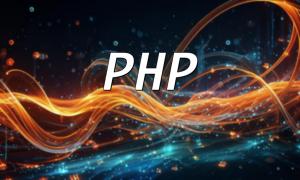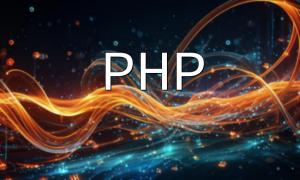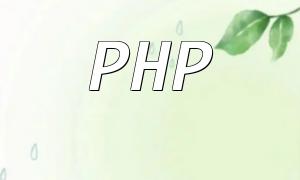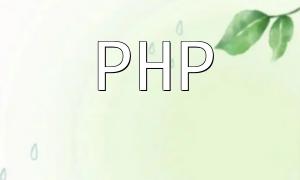With the continuous development of the internet, websites face increasing data processing and user requests. As traffic grows, maintaining fast response times becomes key to enhancing user experience. Caching technology is an effective optimization method that significantly reduces database and file system read/write operations, improving website speed and stability.
In PHP development, commonly used cache extensions include APC and Memcached. They are suitable for different scenarios and help developers achieve efficient data caching while reducing server load.
APC (Alternative PHP Cache) is a PHP extension primarily used to cache PHP code fragments in memory, reducing repetitive compilation and improving execution efficiency. APC also supports caching variables and objects, enabling quick data storage and retrieval.
Install APC extension:
<span class="fun">pecl install apc</span>
Configure php.ini file:
extension=apc.so
apc.enabled=1
apc.shm_size=64M
Example code for using APC cache:
<?php
// Store cached data
apc_store('foo', 'bar');
// Retrieve cached data
echo apc_fetch('foo');
?>
Memcached is a distributed caching system that supports caching data across multiple servers, suitable for large-scale and high-concurrency environments. It effectively reduces database access frequency and enhances application performance.
Install Memcached extension:
pecl install memcached
Configure php.ini file:
extension=memcached.so
Example code for using Memcached cache:
<?php
// Connect to Memcached server
$memcached = new Memcached();
$memcached->addServer('localhost', 11211);
// Set cached data with 3600 seconds expiration
$memcached->set('foo', 'bar', 3600);
// Retrieve cached data
echo $memcached->get('foo');
?>
To fully utilize caching to improve website quality, it is recommended to follow these steps:
Identify cacheable data: prioritize caching frequently accessed but infrequently changed data, such as homepage content; avoid caching user-specific data like shopping carts.
Choose the appropriate cache type: for small frequently accessed data, use in-memory cache (e.g., APC); for large distributed data, consider Memcached.
Write cache code properly: integrate caching code at key points in the application, pay attention to cache lifetime and size limits to avoid cache misses or expiration affecting performance.
Clear cache promptly: when data changes, actively clear related caches to ensure users see the latest information.
Conduct performance testing: before going live, perform stress tests and monitor performance to ensure cache configurations meet actual needs and adjust accordingly.
Caching is a crucial technique to enhance website speed and user experience. By properly using PHP's APC and Memcached extensions, developers can significantly reduce server load and accelerate data access. We hope this article helps you master PHP caching skills and effectively improve your website's performance.








